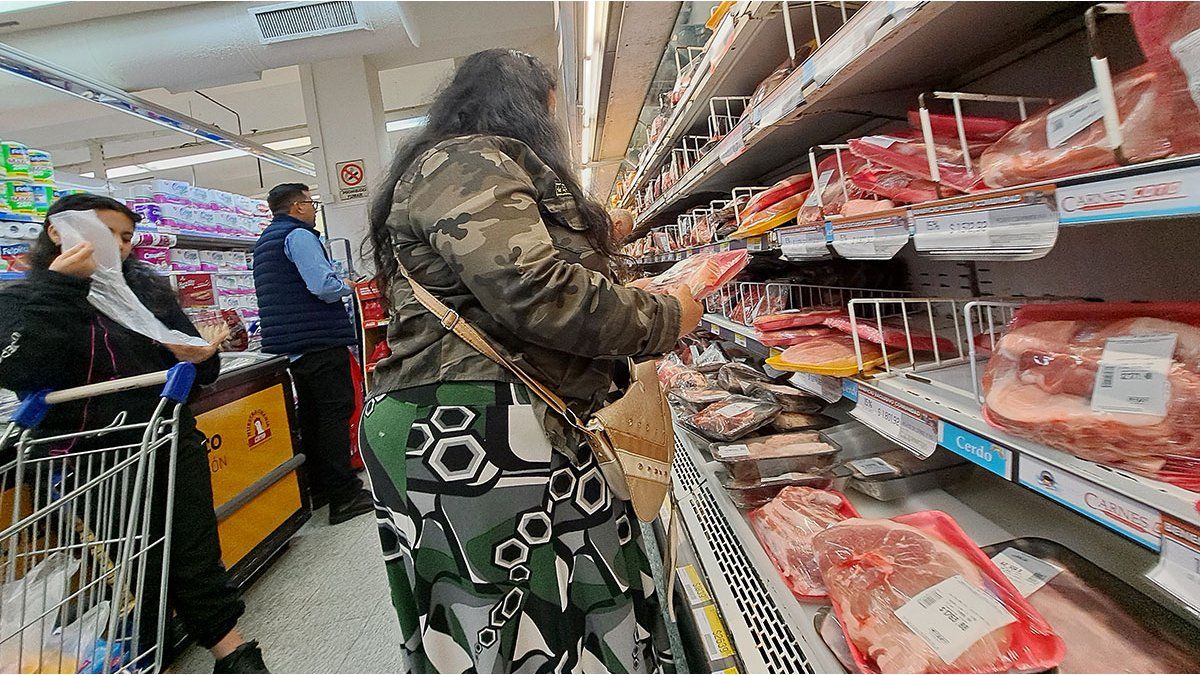The idea of prices for export resonates with exporters who market food of first necessity also on the supermarket shelves. It is that in the deregulation raised by Javier Mileithe elimination of export quotas for the meat and the trusts that cushion the price of wheat and sunflower.
The future Secretary of Bioeconomy said the same thing, Fernando Vilella, in an event with more than one hundred agricultural representatives. Its ultimate goal is to double exports in the long term. “Today each Argentine exports half with a Uruguayan or a third with a Chilean,” he warned. in the meeting. Likewise, he also stated that the reduction in withholdings on soy, corn, wheat and meat is being analyzed, as well as the maintenance of the suspension of withholdings on dairy products after December 31.
The question is what will be the impact of the deregulation of foreign trade on the shelf price. In that sense, Eduardo Buzzi, former Head of the Agrarian Federation, was categorical: “If they give free rein to meat exportsif they let the sales flow, it will be better for the exporters, but The Argentinian is going to pay 25 lucas per kiloAccording to Buzzi, this will be a consequence of the dissolution of the Ministry of Commerce. “Tell me who is going to control the prices,” he explained in radio statements. At the same time, he highlighted that Milei’s proposal “does not mention the regional economy, only adjustment is heard and that the private sector organizes the economy.”
Currently, there are seven cuts of meat with the highest domestic consumption that maintain the export ban. The destination to which 78% of shipments arrive is China and receives frozen boneless, chilled boneless and frozen bone meat. They are followed by the European Union (8%), Israel (6%), the United States and Chile, who each accounted for 3% of national shipments. That is why unlimited exports could be great news for the Asian giant, but not necessarily for the local consumer.
For Miguel Schiariti, head of the Chamber of Industry and Commerce of goods and derivatives of Argentina (CICCRA), the comment of Buzzi It only seeks to “scare people” especially because Brazil and Uruguay “have plenty of meat and they sell it cheaper to China.” Similar is the position of Gabriel De Raedemaeker, former vice president of Argentine Rural Confederations, who maintains that the policy of intervention and closure of exports “is a resounding failure.”
The agricultural producer cites the country models cited by Buzzi, where they use the most expensive cuts to “subsidize the costs of slaughter, cutting, freight, the cuts that remain in the domestic market, which would also reach the counter at a lower value than they would have without that possibility of integration different from prices”. If so, he considers that there should not be a transfer of export parity prices. However, he recognizes that the Government must “assist the vulnerable sectors” while “the productive forces are released and the variables are balanced.”
The same discussion occurs in the wheat and corn sector, but fundamentally the Bakers raise concerns over upcoming deregulation policies. Until December 31, the trusts that decouple the external price of flour: the Public Trust (FETA), which subsidizes the wheat flour market and impacts the price of bakeries and derived products, and the Private Trust, made up of money from exporters. “If these subsidies end, baked goods and flour products will increase sharply,” warns the representative of a food company.
In this sense, Martín Pinto, from the Merlo Bakers Center, dares to put a price per kilo of bread in case of dealing with international prices: the 25 kilo bag of flour, which today costs between $8 thousand and $10 thousand, ” “You could go for more than double that and find a kilo of bread for $2,000.” “We have to be cautious because it is a sensitive issue,” he highlights with concern. Another representative of a food company that exports seeks to clarify this idea: “The flour in the bread is 10%; then it’s all labor and taxes. Furthermore, not all mills are part of the trusts.”
Finally, it remains to analyze what could happen with the oila product that has been around for a long time Fernando Savore, As head of Storekeepers of the Province of Buenos Aires, he warns that there is a lack in small businesses. In this case, a private trust also operates that subsidizes the bottled oil and the arrival of Milei calls into question its continuity. However, for Daniel Yofra, general secretary of the Federation of Oil Industrial Complex Workers, export prices do not represent a problem because “there is a very high level of domestic consumption” and that the shortages respond above all to “speculative issues.” .
Two other variables should be added to the release of quotas, which in turn are interconnected: the correction of the exchange rate and the increase in fuel. The market speculates with a devaluation that reaches at least $500 per dollar and, according to futures contracts, around $770 by the end of December. “A devaluation of the exchange rate would generate upward pressure on the prices of products that are traded internationally. This transfer should not be complete, given that many producers and marketers have already adjusted their reference prices upwards in anticipation of variations in the exchange rate,” indicates Pablo Besmedrisnik, director of VDC Consultora. According to the specialist, from August to date the general price increase was greater than 36% with an official exchange rate that barely moved. In that sense, he considers that especially the meat, cereals, oils and fats are foods that will suffer increases.
Source: Ambito




